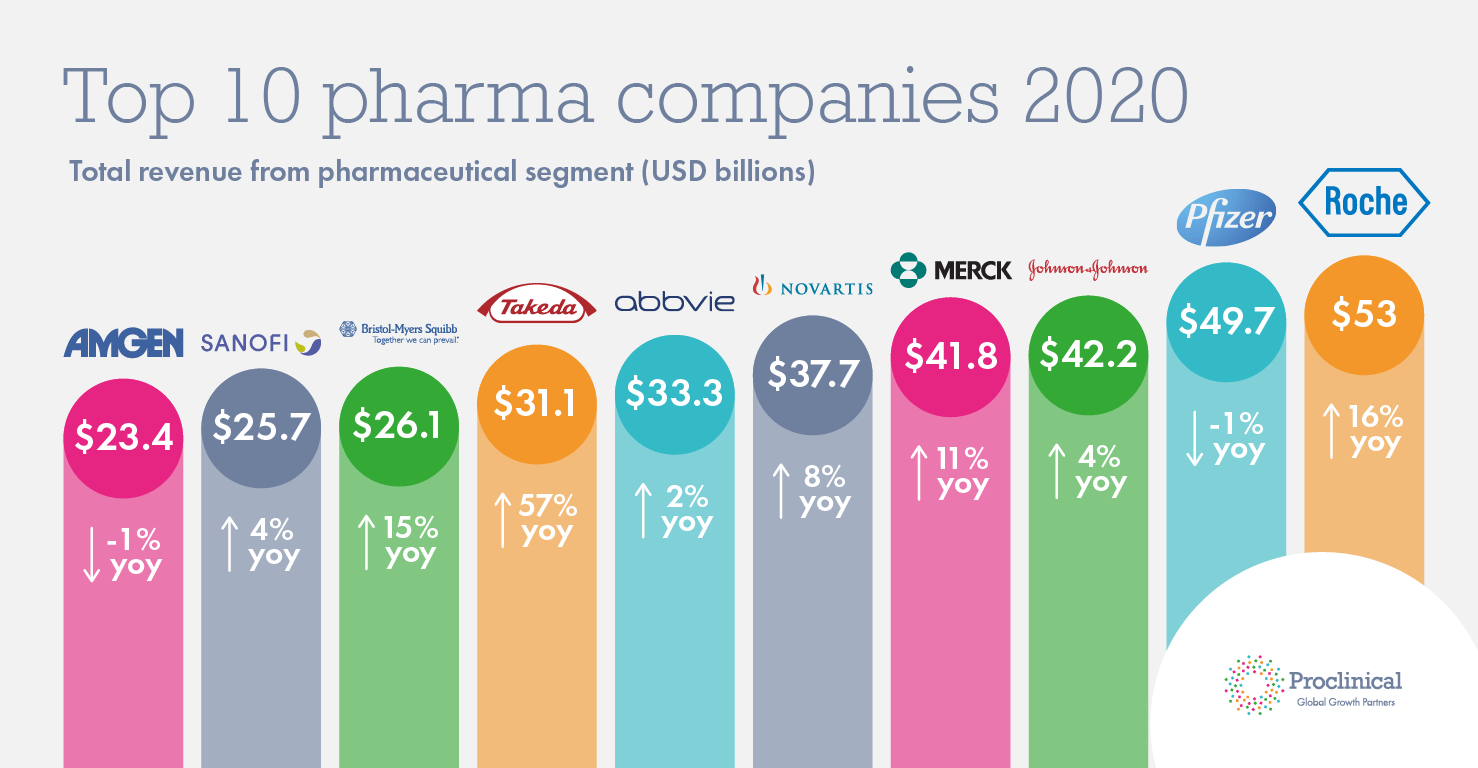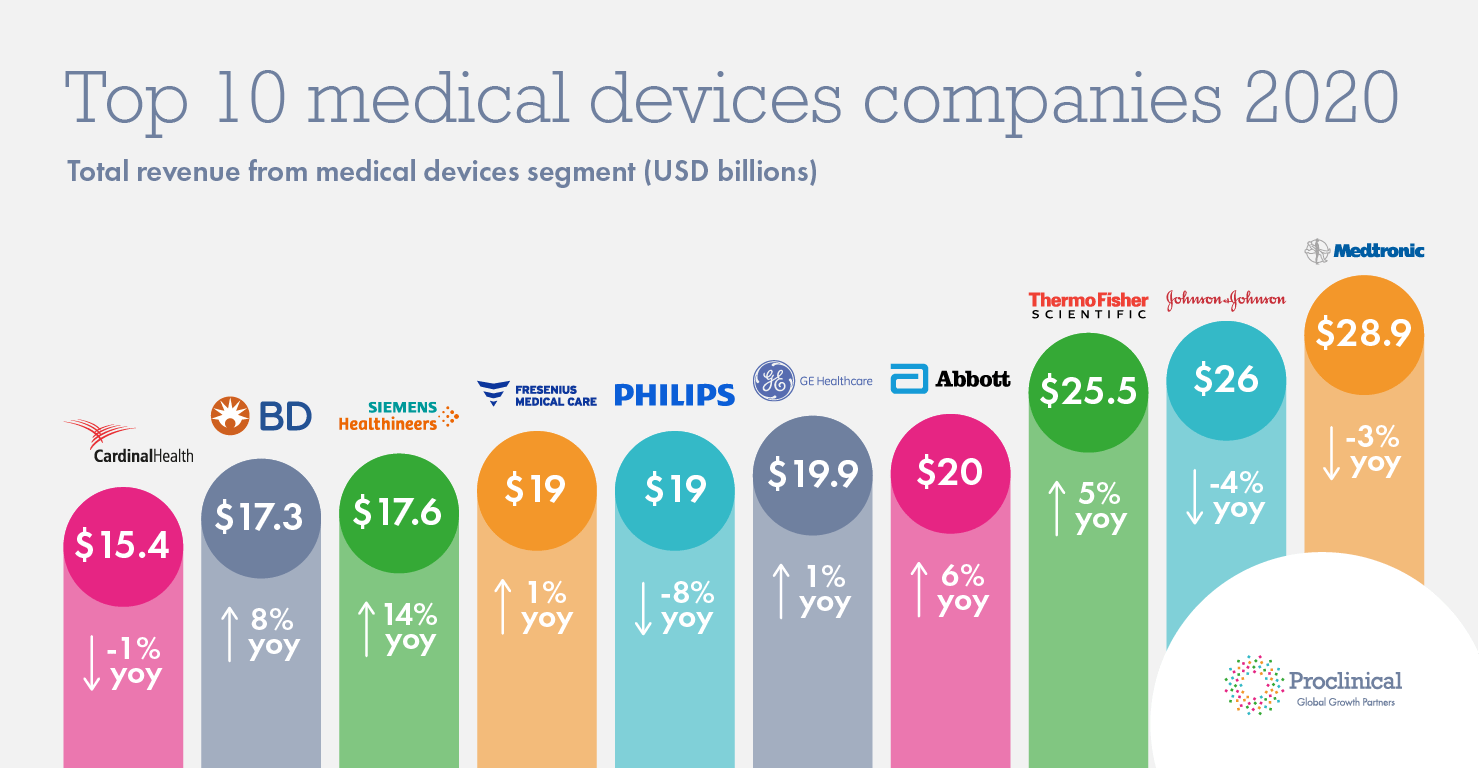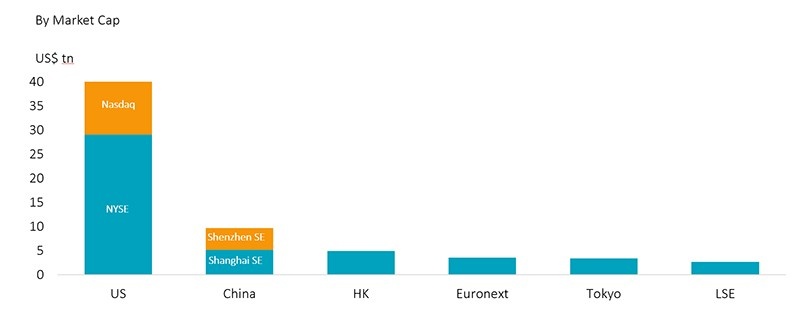The Top 10 Pharmaceutical Companies in the World for 2020 based on their 2019 revenue are shown in the graphic below. The Top 3 firms were Roche, Pfizer and Johnson & Johnson.
Click to enlarge
Source: Proclinical
The tickers of the companies shown above are:
- Roche Holding AG (RHHBY)
- Pfizer Inc (PFE)
- Johnson & Johnson (JNJ)
- Merck & Co Inc (MRK)
- Novartis AG (NVS)
- AbbVie (ABBV)
- Takeda (TAK)
- Bristol-Myers Squibb Co (BMY)
- Sanofi (SNY)
- Amgen (AMGN)
Disclosure: No Positions




